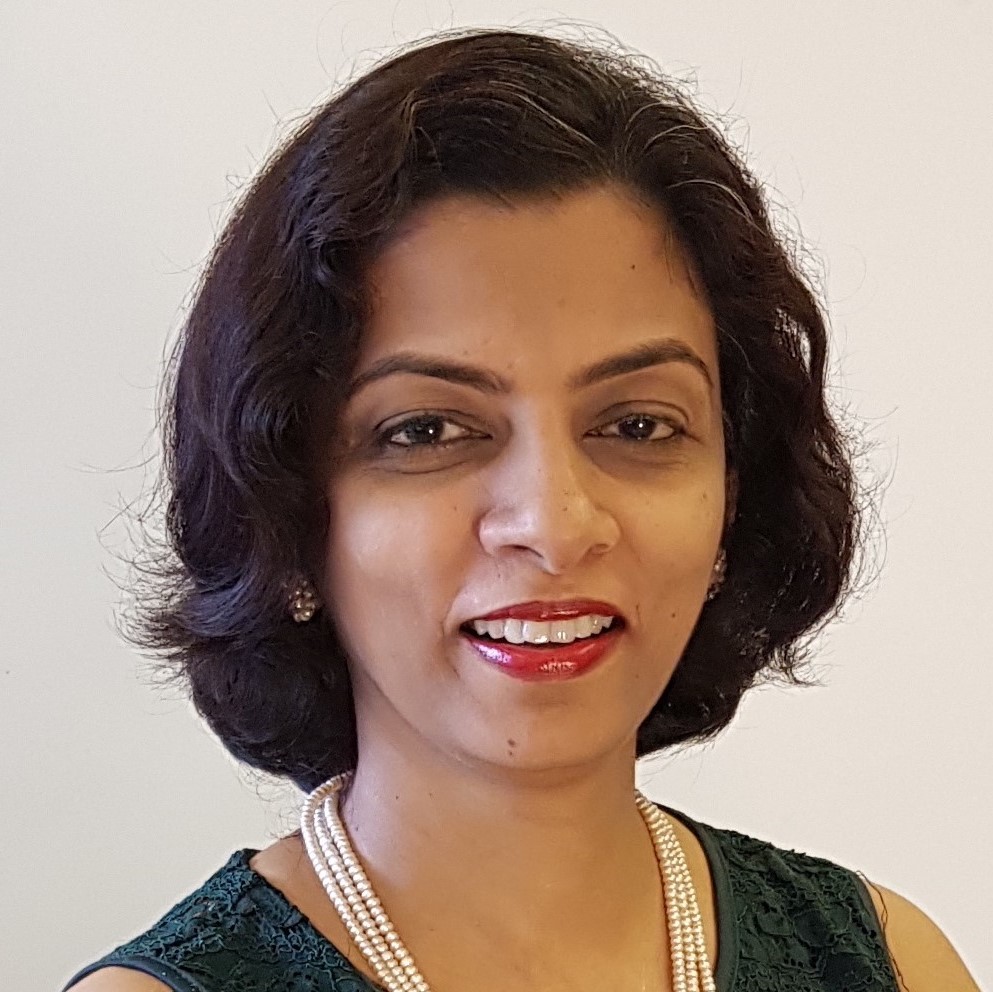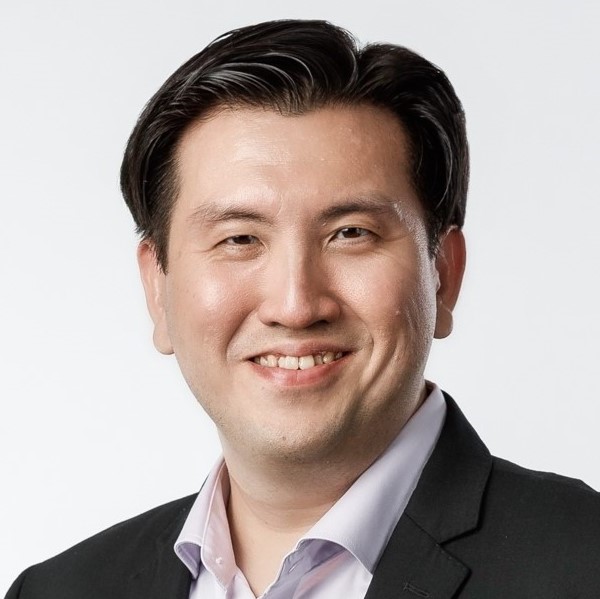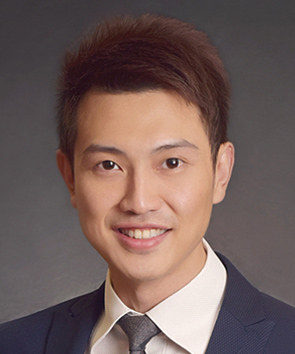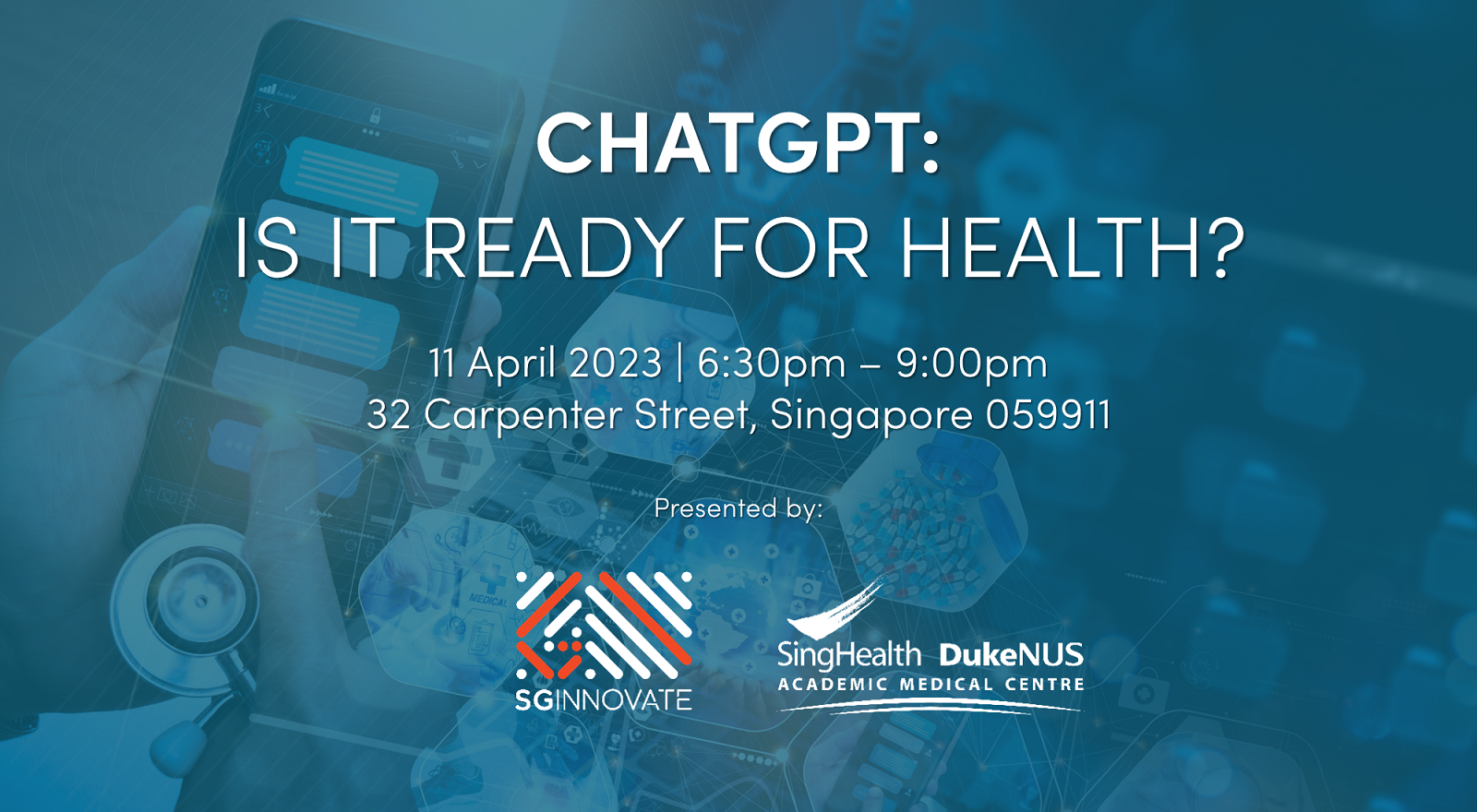Overview
In this session, our panel of experts will discuss the potential benefits and risks of using ChatGPT and AI technologies in healthcare settings, and guidelines and principles for the responsible development and deployment of AI in healthcare, necessary to keep pace with the advancements in AI technology while balancing their implications in healthcare.
As AI continues integrating into the healthcare industry, it has the potential to greatly improve patient outcomes and the efficiency of healthcare systems. In particular, AI models like ChatGPT have the potential to revolutionise the way healthcare professionals interact with patients, for example, to answer patients' questions, triage patients based on their symptoms, provide personalised medical advice.
However, the use of AI and Natural Language Processing (NLP) technologies like ChatGPT in patient care also raises important ethical questions about data privacy, algorithmic bias, and the potential for AI to be used for harmful purposes. As such, AI ethics and regulatory frameworks are essential for ensuring that the use of ChatGPT and other AI-based technologies in healthcare is safe, effective, and ethical.
In this session, our panel of experts will discuss the potential benefits and risks of using ChatGPT and AI technologies in healthcare settings, and guidelines and principles for the responsible development and deployment of AI in healthcare, necessary to keep pace with the advancements in AI technology while balancing their implications in healthcare.
[This event synopsis was generated with the support of ChatGPT.]
Date: 11 April 2023, Tuesday
Time: 6:30pm – 9:00pm
Venue: 32 Carpenter Street, Singapore 059911
Programme:
6:30pm - 7:00pm: Registration
7:00pm - 7:05pm: Introductions & Welcome
7:05pm - 8:00pm: Panel Discussion and Q&A with
- Prof Thomas Coffman, Dean, Duke-NUS Medical School
- Zee Kin Yeong, Assistant Chief Executive (Data Innovation and Protection Group), Infocomm Media Development Authority of Singapore (IMDA) and Deputy Commissioner, Personal Data Protection Commission (PDPC)
- Dr Keren Priyadarshini, Regional Business Lead - Worldwide Health, Microsoft Asia
- Dr Wei Yang Cheong, Deputy Secretary (Technology), Ministry of Health
- Moderator: A/Prof Daniel Ting, Director - Cluster AI Office, SingHealth and Head of AI and Digital Innovation, Singapore Eye Research Institute
Speakers' Profiles:
Prof Thomas Coffman, Dean, Duke-NUS Medical School

Prof Thomas Coffman is Dean of Duke-NUS Medical School and Founding Professor in its Cardiovascular and Metabolic Disorders Signature Research Programme (SRP). He is also the James R Clapp Professor of Medicine at Duke University Medical Center, where he spent almost 18 years as Chief of the Division of Nephrology and served as Senior Vice-Chair in the Department of Medicine.
Prof Coffman graduated from the University of Pennsylvania and obtained his MD from the Ohio State University School of Medicine. He moved to Duke for his medicine residency and nephrology fellowship, joining the faculty in 1985 to pursue his career as a clinician and researcher. Along with his leadership of the Division of Nephrology, Prof Coffman was the Founding Director of the Duke Cardiovascular Research Center and the Duke O'Brien Center for Kidney Research. He joined Duke-NUS in 2010 as Director of the Cardiovascular and Metabolic Disorders SRP. Prof Coffman was appointed Dean at Duke-NUS on 1 July 2015. He is also a member of the SingHealth Board of Directors.
An international leader in nephrology, Prof Coffman is a Past-President of the American Society of Nephrology. He is also a member of the American Society for Clinical Investigation and the Association of American Physicians and served on the Nephrology Subspecialty Board of the American Board of Internal Medicine. Prof Coffman has served on several editorial boards, including Physiological Reviews and Cell Metabolism, and is currently Associate Editor of the Journal of Clinical Investigation. He is a Fellow of the Councils for High Blood Pressure Research and the Kidney in Cardiovascular Disease of the American Heart Association (AHA) and serves on the Leadership Committee for the AHA Council for High Blood Pressure Research. Prof Coffman also served as Chair of the Steering Committee for the National Institutes of Health (NIH)-funded Animal Models of Diabetes Complications Consortium. His laboratory work has been supported by grants from the NIH and the Department of Veterans' Affairs. Prof Coffman's research interests include the renin-angiotensin and prostanoid systems and diabetic nephropathy.
Prof Coffman was conferred the 2014 Excellence Award for Hypertension Research from the AHA Council on Hypertension, recognising researchers who have made a major impact in the field of hypertension and whose research has contributed to the improved treatment and greater understanding of high blood pressure. He also received the 2014 Distinguished Faculty Award from the Duke Medical Alumni Association and the 2022 Alumni Achievement Award from The Ohio State University, College of Medicine.
Currently, Prof Coffman sits on the boards of various institutions locally and internationally, including Singapore Health Services (SingHealth), Singapore Eye Research Institute (SERI), Singapore National Medical Research Council (NMRC) and King Faisal Specialist Hospital & Research Centre in Saudi Arabia. He also serves as the Medical Advisory Committee Chairman at the National Kidney Foundation (NKF) Singapore.
Zee Kin Yeong, Assistant Chief Executive (Data Innovation and Protection Group), Infocomm Media Development Authority of Singapore (IMDA) and Deputy Commissioner, Personal Data Protection Commission (PDPC)

As Assistant Chief Executive (Data Innovation and Protection Group), Zee Kin Yeong oversees IMDA’s AI and Data Industry development strategy with the key responsibility of developing forward-thinking governance on AI and data in Singapore. He also spearheaded the development of Singapore’s Model AI Governance Framework, which won the UNITU WSIS Prize in 2019. He is currently a member of the OECD Network of Experts on AI (ONE AI) and was a member of the AI Group of Experts at the OECD (AIGO), which developed the OECD Principles on AI.
In his capacity as Deputy Commissioner of PDPC, Zee Kin oversees the development, administration and enforcement of the Personal Data Protection Act (2012). His key responsibilities include managing the formulation and implementation of policies relating to the protection of personal data and issuing enforcement directions for organisational actions. As a well-regarded expert on data privacy issues, he has spearheaded various public and sector-specific activities to raise awareness and compliance in data protection. He is currently participating as an expert in the Global Partnership on AI (GPAI)’s Data Governance Working Group, which addresses data protection issues at the intersection of AI development and deployment.
Dr Keren Priyadarshini, Regional Business Lead - Worldwide Health, Microsoft Asia

As Regional Business Lead of Worldwide Health for Microsoft Asia, Dr Keren Priyadarshini leads the company’s healthcare business segment across 17 markets in Asia Pacific.
Dr Priyadarshini is responsible for driving and implementing Microsoft’s healthcare initiatives across the region as well as developing solution offerings and strategies that meet the needs of healthcare and life science customers. She also plays a leading role in establishing thought leadership by defining and articulating the company’s vision for the future of healthcare and sharing how Microsoft technologies and partner solutions are making it a reality.
Dr Priyadarshini is passionate about empowering providers, payors, and life science companies with the right technology to enable better patient outcomes at lower costs. Improving healthcare quality through digital transformation, enabling wider access to healthcare as life expectancy increases, and keeping rising costs in check are issues that keep her awake at night.
She desires to create a world of ‘Intelligent Healthcare’ through AI and the cloud, to unlock biological insight and break data from silos for a truly personal understanding of human health and, in turn, enable better access to care, lower costs and improved outcomes.
Dr Priyadarshini moved to Singapore almost 15 years ago and has been instrumental in establishing the Asia Pacific business for multinational healthcare companies such as GfK and Truven Health. Before joining Microsoft, Dr Priyadarshini was the Asia Pacific Vice President of Sales for Truven Health Analytics, part of IBM Watson Health, where she pioneered the adoption of Watson in the region.
Born in Chennai, India, Dr Priyadarshini graduated as a Fellow from the Indian Institute of Management (IIM-A), Ahmedabad, where she completed her Doctorate in Business Management.
Dr Wei Yang Cheong, Deputy Secretary (Technology), Ministry of Health

As Deputy Secretary (Technology) at the Ministry of Health (MOH), Dr Wei Yang Cheong deploys technology against COVID-19 and develops the health research and innovation ecosystem to achieve a Healthier SG which focuses on population health, precision health and preventive health. He sits on the Board of Integrated Health Information Systems (IHiS).
Prior to MOH, he was Deputy CEO of the National Research Foundation (NRF), overseeing the implementation of the S$19 billion Research Innovation and Enterprise (RIE) 2020 plan and leading an inter-agency effort to develop the S$25 billion RIE 2025 plan.
Dr Cheong was also the Ministry of Education's Divisional Director (Planning). Beyond educational policies, he shaped educational research at the National Institute of Education, international benchmarking and partnership efforts. As Deputy Director (Manufacturing & Services) at the Ministry of Trade and Industry, Dr Cheong oversaw the Singapore Economic Development Board and the Secretariat for Economic Strategies Committee chaired by Senior Minister Tharman Shanmugaratnam. As Head of Fiscal Strategy at the Ministry of Finance, he shaped Singapore's long-term fiscal sustainability.
He served on the Boards of URA; ISEAS-Yusof Ishak Institute; NMRC; EDDC; DxD Hub; National Additive Manufacturing Programme; Singapore Food Story R&D Programme, and NRF Holdings. He continues to serve on the Boards of Advanced Cell Therapy and Research Institute of Singapore (ACTRIS), the Centre for Research & Development in Learning (CRADLE), the National Clinical Trial Steering Committee (NCTSC) and Precision Health Research Singapore (PRECISE).
As a Rhodes Scholar and PSC Scholar, he obtained his DPhil/MPhil in Economics from Oxford, his S.B. in Chemical Engineering, and his S.B. in Economics from the Massachusetts Institute of Technology.
Moderator's Profile:
A/Prof Daniel Ting, Director - Cluster AI Office, SingHealth and Head of AI and Digital Innovation, Singapore Eye Research Institute

A/Prof Daniel Ting is a Senior Consultant in the Surgical Retina Department at the Singapore National Eye Centre, Associate Professor of Ophthalmology at the Duke-National University of Singapore Medical School, Director of the Cluster AI Programme at SingHealth, and Head of AI and Digital Innovation at the Singapore Eye Research Institute. His research interests include AI, big data analytics, surgical innovation, retina diseases, and more. In collaboration with several leading eye centres globally, he and his team have developed and validated a novel and robust AI system using deep learning to detect referable diabetic retinopathy, referable glaucoma suspect, and age-related macular degeneration. He is actively involved in the healthcare AI space, serving on several AI executive committees and editorial boards, and has published more than 200 peer-reviewed papers in high-impact journals.
A/Prof Ting has received many prestigious scientific awards, including the Asia-Pacific Academy of Ophthalmology Nakajima Award and the Association for Research in Vision and Ophthalmology Bert Glaser Award for Innovative Research in Retina. He was also ranked as the world’s most influential deep learning healthcare researcher between 2010 and 2021 by Expertscape.






